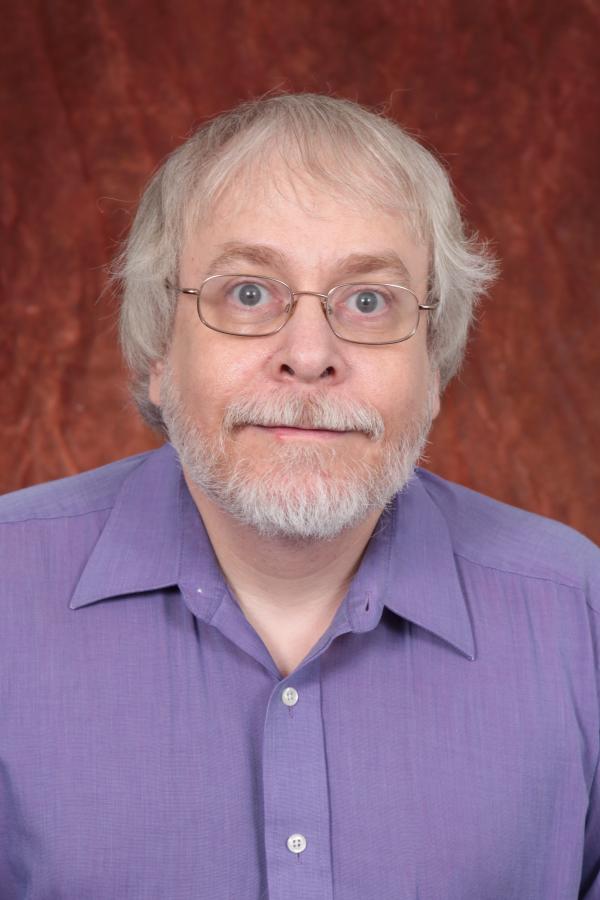
Dr. Russell Almond is an associate professor of Measurement & Statistics in the Department of Educational Psychology and Learning Systems.
He received his undergraduate degree from the California Institute of Technology (Caltech) in 1983 and received his Ph.D. in Statistics from Harvard University in 1990. Before coming to FSU, he spent 14 years as a Research Scientist at Educational Testing Service.
Dr. Almond's research interests focus around of the question of how to gather, track and monitor evidence of student growth using both traditional sources (e.g., assessments and homework) and non-traditional sources (e.g., simulations and games), especially in situations where multiple dimensions of student proficiency are considered. Together with R. Mislevy and L. Steinberg, he was a part of the effort to create Evidence Centered Design (ECD)—a process for designing assessments based on explicating the underlying evidentiary arguments that support their claims. This work won the National Council on Educational Measurement Award for Outstanding Scientific or Technical Contribution to Educational Measurement in 2000. He received an honorable mention in the category of Outstanding Contribution to Cognition and Assessment from the Cognition and Assessment Special Interest Group at the American Educational Research Association Annual Meeting in 2015, and is a regular contributor to the Cognition and Assessment blog.
Together with R. Mislevy, L. Steinberg, D. Yan and D. Williamson, he has authored a monograph on building Bayesian networks using ECD, Bayesian Networks in Educational Assessment (published in 2015 by Springer), and has presented a tutorial on the subject every year since 2004 at the annual meeting of the National Committee on Measurement in Education (NCME).
He is a statistician with extensive training and interest in computer science, particularly artificial intelligence. His research interests include representations of uncertainty in artificial intelligence (in particular, Bayesian networks and partially observed Markov decision processes, POMDPs), use of artificial intelligence techniques in data analysis, human factor design for data analysis and education, Bayesian computation, and statistical model engineering. He has been a regular member of the program committee for the Uncertainty in Artificial Intelligence. In 2005 and 2013, he chaired the Bayesian Modeling Application Workshop at that conference.
He has been the lead designer and programmer on a number of software systems, including: StatShop, a suite of tools for supporting the use of Bayesian networks and other measurement models with the ECD process; RNetica, a binding of the Netica API in the R language; CPTtools, a collection of tools for building conditional probability tables; and BELIEF, software for manipulating graphical belief models. He was also a major contributor to the design of Portal—an internal ETS system for managing information during the ECD design process, and versions 1.1 and 1.2 of the IMS specifications on Question and Test Interoperability. His contributions include a four process abstract model of assessments (with L. Steinberg and R. Mislevy) which served as a reference model in the construction of these specifications. He has designed the scoring engine for a number of innovative assessments including: Biomass, a prototype assessment for measuring ability to perform scientific reasoning in the context of genetics; ACED, a prototype diagnostic assessment aimed at 8th grade mathematics standards; and Physics Playground, a game designed to assess the players Persistence, Creativity and Knowledge of Physics.
For several years, he was a volunteer mentor with Science Mentors 1-to-1, a local non-profit, science-based, environmentally focused, one-to-one mentor program that inspires, motivates, and empowers underserved high school students to develop academic discipline, critical thinking, and personal responsibility in order to be active stewards of their lives, communities, and the environment.